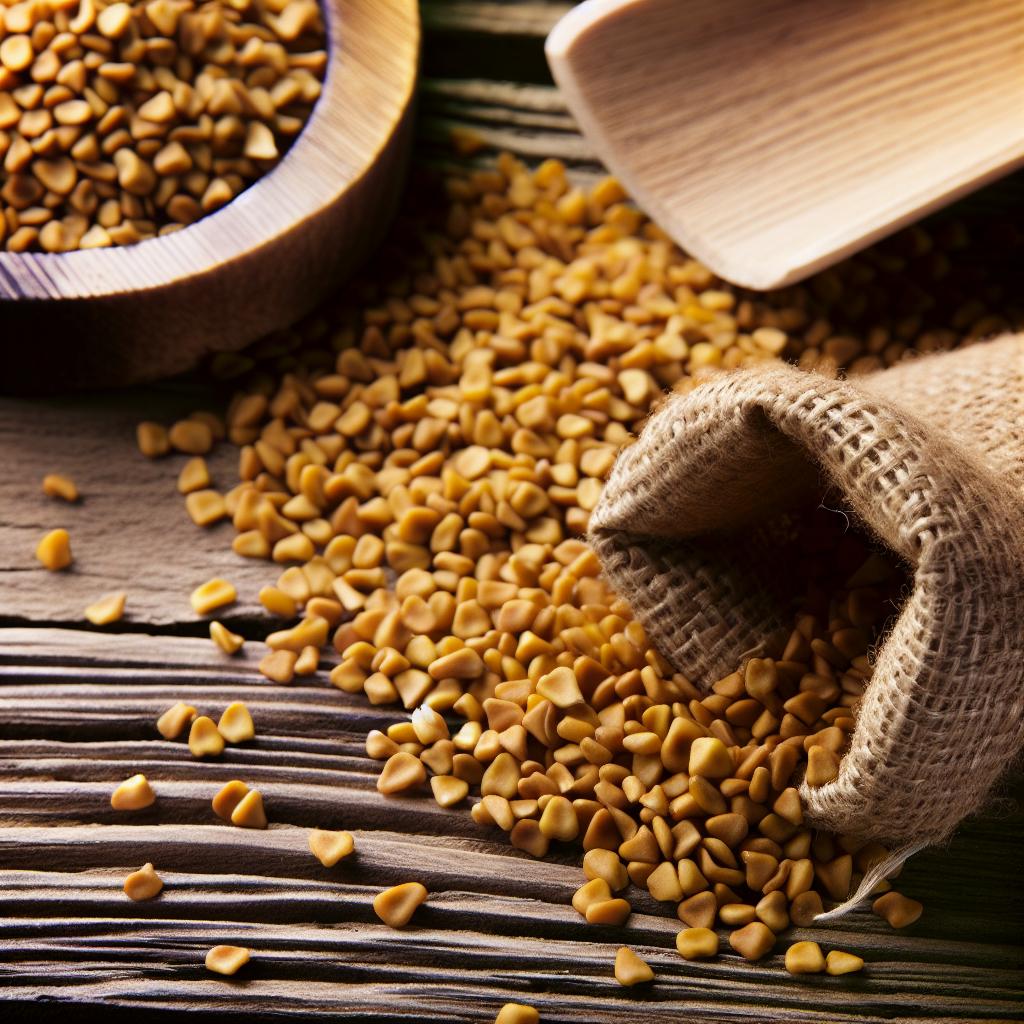
Introduction to Fenugreek Seeds
Fenugreek seeds, derived from the plant Trigonella foenum-graecum, have held significant importance across cultures for centuries, celebrated both as a culinary spice and for their medicinal prowess. Traditionally originating from the Mediterranean basin, these small, hard, rectangular seeds have traversed borders and are now cultivated widely across the globe in countries renowned for their rich agricultural traditions, such as India, Egypt, and Morocco. The seeds’ distinct slightly bitter taste and characteristic aroma earmark their identity while contributing to their varied uses across numerous sectors.
Nutritional Profile
Fenugreek seeds boast a remarkably rich nutritional profile, making them a treasure trove of essential nutrients. These seeds are jam-packed with dietary fiber, proteins, and an array of vital vitamins and minerals that contribute to their therapeutic promises. Among these, fenugreek seeds stand out for their considerable concentrations of iron, magnesium, and manganese. Iron plays a critical role in hemoglobin formation, magnesium is essential for muscular and nervous function, while manganese acts as a cofactor in numerous enzyme systems. The complex nutritional matrix of fenugreek seeds not only contributes to their health-promoting attributes but also sets the groundwork for various dietary applications.
Health Benefits
Fenugreek seeds have been the focus of numerous scientific inquiries, and several potential health benefits have been identified. Their use over the centuries in traditional medicine systems is increasingly being supported by modern research:
Blood Sugar Management: A growing body of research spotlights fenugreek seeds as a potential ally in the management of blood glucose levels. Specific compounds within these seeds, such as soluble fiber and the amino acid 4-hydroxyisoleucine, are believed to enhance glucose metabolism and insulin sensitivity. This feature holds considerable promise for individuals managing diabetes, offering a complementary strategy alongside traditional treatments.
Digestive Health: Embodying a high fiber content, fenugreek seeds facilitate improved digestive health. They can be particularly effective in mitigating common issues such as constipation. The fiber absorbs water and expands in the digestive tract, helping to form bulkier stools that pass more quickly and easily through the intestines. Additionally, fenugreek may help soothe the stomach lining and intestines, providing relief for mild discomfort and bloating.
Inflammation Reduction: Fenugreek seeds possess intrinsic anti-inflammatory properties, attributed to their rich composition of antioxidants and other bioactive compounds. These properties may aid in reducing inflammation within the body, potentially alleviating symptoms associated with chronic inflammatory conditions and contributing to overall well-being.
Potential Applications
The versatility of fenugreek seeds is displayed not only in their ability to enhance the flavor of dishes but also in their significant medicinal applications. Culinary Uses: In gastronomy, fenugreek seeds serve as a beloved spice, accentuating a myriad of regional and international recipes. Their inherent bitterness can be tempered by roasting, after which the seeds may be ground into a powder or used whole, enriching dishes with both nutritional and sensory complexity.
Traditional Medicine: On the medicinal front, fenugreek seeds have been a staple in the formulation of herbal remedies across different cultures. Whether used in tonics, teas, or encapsulated supplements, these seeds have long been cherished for their potential to support metabolic and digestive health. Their applications reflect the continuing dialogue between ancient wisdom and contemporary science, with modern research progressively validating many traditional uses.
Cautions and Considerations
Despite their myriad benefits, there are important considerations to take into account when incorporating fenugreek seeds into one’s diet or wellness regimen. Potential allergic reactions are one such caution, where individuals may experience respiratory or skin issues. Those with known allergies to other legumes, such as peanuts or chickpeas, should be particularly vigilant.
Moreover, excessive consumption of fenugreek seeds might lead to gastrointestinal disturbances, including diarrhea or an upset stomach. This underscores the importance of moderation and the need for balanced use. Consulting healthcare professionals is imperative for individuals contemplating the use of fenugreek supplements or significant dietary incorporation, especially for those with pre-existing health conditions or those currently on medication, as interactions could occur.
Further Reading
For those keen on delving deeper into the fascinating world of fenugreek seeds and their multifaceted applications, an abundance of scholarly articles and nutritional studies await. As ongoing research continues to unravel the full extent of fenugreek’s benefits, resources from reputable health and nutrition websites offer a gateway to emerging insights and developments within this field. Embracing both the scientific and cultural narratives of fenugreek seeds can enrich our understanding of their enduring appeal and potential place in both culinary and health domains.

